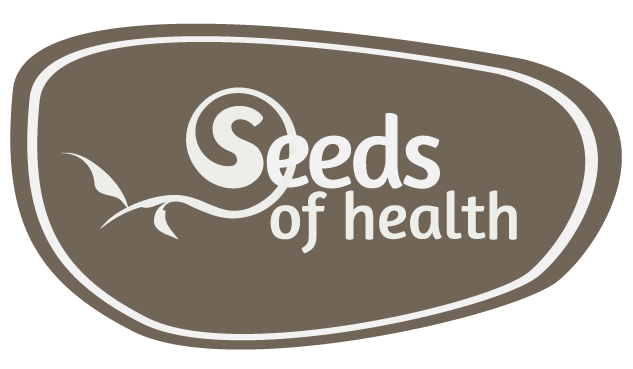The thyroid is a butterfly shaped gland that resides in front of your throat and under your Adam's apple with an important function of producing and releasing hormones (T4 & T3). These hormones along with the well known pancreatic hormone insulin and cortisol are responsible for regulating your metabolism, providing energy to your cells & regulating your sex hormones.
The function of the thyroid is both simple yet complex. It begins in the brain with an initial signal from the pituitary gland to release a hormone that then stimulates the thyroid to produce and release its hormones. This is not the complete picture however, as we need to ensure the hormones have been converted into the correct form which allows the hormone to enter your cells and complete the required tasks, of metabolising, producing energy, and interacting with other hormones. Ensuring this final step means no annoying symptoms like fatigue, poor memory, morning stiffness and difficulty losing weight. You don’t need to be experiencing all of the symptoms to indicate your cells have low levels of thyroid hormones. Key symptoms to look out for include:
· Lethargy
· Sensitivity to cold
· Heat intolerance
· Mood swings
· Headaches
· Vertigo
· Deafness
· PMS
· Voice change
· Loss of libido
· Susceptibility to viral infections
· Unexplained weight gain
· Difficulty losing weight
The next question is, how do we look after our thyroid and its hormones? There are a number of important steps you can take to nourish and support your thyroid and improve these important last steps of the thyroids journey into your cells.
EAT FOODS THAT NOURISH
Include in your diet at least 3 times a week foods high in iodine. Iodine is an essential mineral required by the thyroid for production of its hormones.
· Kelp
· Wakame/nori etc
· Oysters
· Cranberries
· Mushrooms
· Fish
· Dulse flakes (yummy added to your salads and soups)
· Sunflower Seeds
Another important thyroid mineral is selenium, which particularly helps with the conversion into a more useable form. Foods high in selenium include:
· Fish
· Oysters
· Alfalfa
· Celery
· Cashews/brazil nuts
· Onion
· Garlic
· Broccoli
· Mushrooms
FOODS TO AVOID can depend on the individual, however as a guide can include common inflammatory triggers, which can disrupt the balance of conversion, such as gluten, dairy, soy, alcohol and sugar.
*I would also add that flouride greatly affects our thyroid gland*
KEEP ON MOVING
Exercise helps stimulate thyroid gland secretion, ramps up the metabolism and improves your cells receptiveness. If you are exercising why not get a dose of Vitamin D at the same time, and take a walk outside, this is another very important vitamin for hormone health.
GO ON A DETOX PROGRAM
This is one of my favourite suggestions, and something I like to do once every 6 months. I don’t realise how sluggish my whole system has become, until a few days into the detox and my bloated belly disappears, I lose a couple of kilograms, and I start feeling great and full of energy again. Detox programs allow your digestive system including your liver to go on a well deserved holiday. The liver is always working hard, finishing off jobs for so many other systems including recycling and excreting unwanted biochemicals which include your hormones. A good percentage of conversion to the active T3 hormone, used by your cells, takes place in the liver, and again selenium is a very important part of this process. The liver is susceptible to stressors such as poor nutrition, chronic illness and exposure to heavy metals. Allowing the liver and gut a holiday can ramp up these vital conversion processes again.
HEALTHY GUT COLONY
Your friends in the gut, perform many tasks and interactions for us, and one of them is converting your thyroid hormones into the active form utilised by your cells. About 20% of the conversion is performed by your friendly bacteria. They can help to reduce inflammation levels in the body, which if left unchecked negatively impact upon your active thyroid levels. Inflammation causes a rise in cortisol levels, throwing things out of balance. Regular consumption of fermented foods and drinks in your diet is a great way to maintain a healthy colony. It is also important to bare in mind that especially after taking antibiotics and even during and after a detox program, a course quality probiotics can positively impact on your thyroid health.
SLOW DOWN AND BE MINDFUL WHILST EATING
Take time to enjoy every mouthful and chew with purpose. This is the beginning of good digestion. Having a strong digestive system is connected to having a healthy metabolism and hormone balance (as well as a strong immune system). Eating slowly allows your body to register that food is going in, and gives it a chance to prime all aspects of digestion (stomach acid, digestive enzymes, gallbladder bile and many other chemicals). Chewing and eating slowly, gives the body a chance to release sufficient hormones associated with satiety giving greater portion control.
Written by Pettina Jaques (Prac student @Seeds Of Health) & edited by Janelle Twine.


